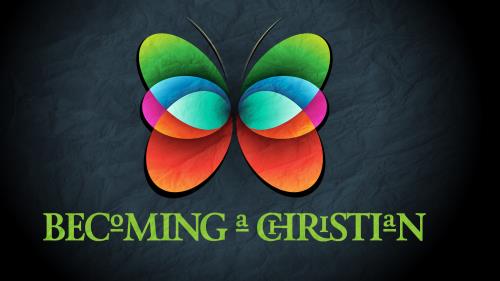-
Aren’t All Religions Basically The Same? Series
Contributed by Sean Harder on Jan 11, 2013 (message contributor)
Summary: for the next three weeks I’m going to present three messages from the pulpit that I am calling the “Big Questions”. These are not necessarily questions you all have, though some of you may. But these are intended to answer some of the most common question
You may have heard this story before: Several blind men were led into a King’s courtyard, where they encountered an elephant. One felt a tusk and concluded that the elephant is like a spear. Another touched a leg and thought that the elephant is like a tree. Yet another bumped into the side of the beast and thought that it was like a wall. And so on. Then the King hearing the activity, came out on his balcony and told the blind men that they were encountering only a small part of the magnificent whole.
This lesson is meant to teach that different religious traditions of the world are all stumbling on only one particular aspect of the ultimate reality and are blind to the whole picture. But all religions are basically touching the same essential truth. However if all religions are basically the same at their core, why has there been so much conflict or quarrel throughout the years between them?
We tend to miss the most important part of this little fable. How do the blind men find out the truth about their encounter with the elephant? It is revealed to them from above by the King. So the profound question is, who is this King who can see all and reveal all the truth that we can’t see?
Unless there is some word from above that tells us that all religions are the same, there is no good reason to conclude that they are, because evidence says they’re not. Certainly we can identify common themes in many religions, like love, and how to live a good life, but most of the differences between the major traditions are very great.
Ironically, the other thing this fable assumes is that there is a King who oversees it all and has the truth. Of course Jesus Christ is the only figure in history who claimed to be God in the flesh and was able to prove it. He said there is only one way, one truth, and one God who is the source of salvation. In fact many religions don’t even believe in a need for salvation. Jesus is the only one who didn’t leave us with a blind faith, and Christianity becomes the only world faith that does not require performance for salvation or enlightenment.
So I’m going to cover the basic beliefs of the religions that we will most often come in contact with, and look at the differences between them and Christianity. Let’s start with the most notable one, the Muslim faith. It is the second largest next to Christianity and it actually came from the Judaistic beliefs as well. Their Holy book the Koran, is very similar to the Old Testament. They believe in one God, Allah who is in charge of everything.
They believe people are foolish sinners who need instruction from the Koran. Sin is seen as violations of man made Muslim taboos and prohibited behaviour given through the prophet Mohammed. They believe salvation from Hell is through utter devotion to Allah and diligence in the five pillars which are: daily recitation of creed, prayer, giving alms, pilgrimage to Mecca, and fasting on their Holy day of Ramadan.
They believe there will be a final resurrection of the righteous into eternal bliss in paradise, with all the physical pleasures of this life available. Infidels, those who do not completely submit to Allah go to a most torturous hell.
Muslims believe that God has sent prophets throughout history from Adam to Noah, to Jesus and ultimately to Mohammed, all with the same message: there is only one God, and he desires people to pursue good and prevent evil.
The Koran only sees three sections of biblical literature to be authentic, the Torah or law of Moses, the life of Jesus, and the Psalms of David. The Christians and Jewish scriptures other than this have been corrupted and then restored by Mohammed in the Koran. This all happened in about the 6th century AD.
They do believe that Jesus was a prophet and that he was born to a virgin, was sinless, performed miracles, and is coming again. But they don’t believe he was resurrected from the dead and is God. They also believe that the Holy Spirit who Jesus said was coming as a counsellor, was a prophecy about Mohammed.
So the key differences are that they don’t believe Jesus was God, and they don’t believe in resurrection of the dead. Many will say that they believe in the same God the Father as we do. And there are many similarities that can lead to this belief. But it differs in many ways such as, God is remote and not intimate, He doesn’t have a son, he is not a trinity, and does not love unconditionally.

 Sermon Central
Sermon Central



